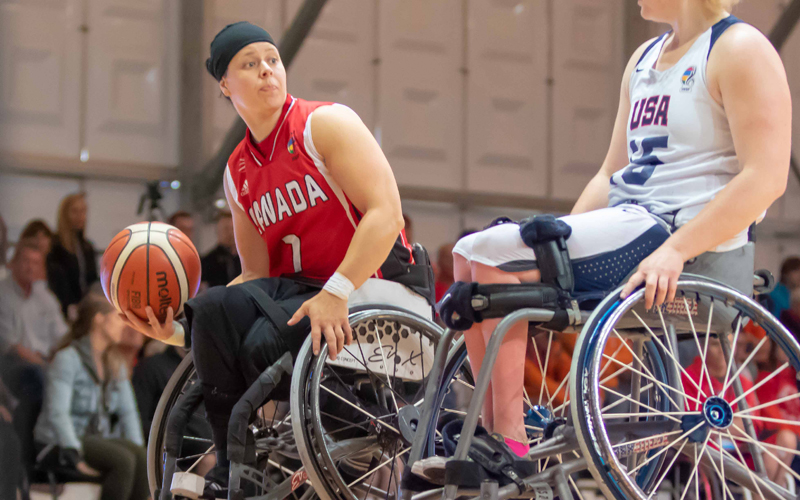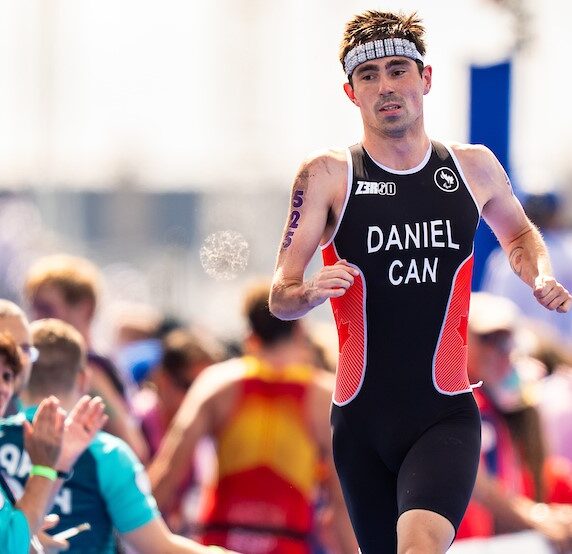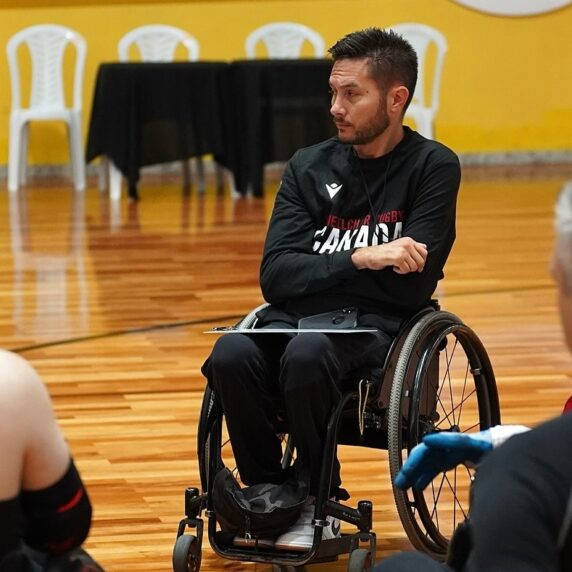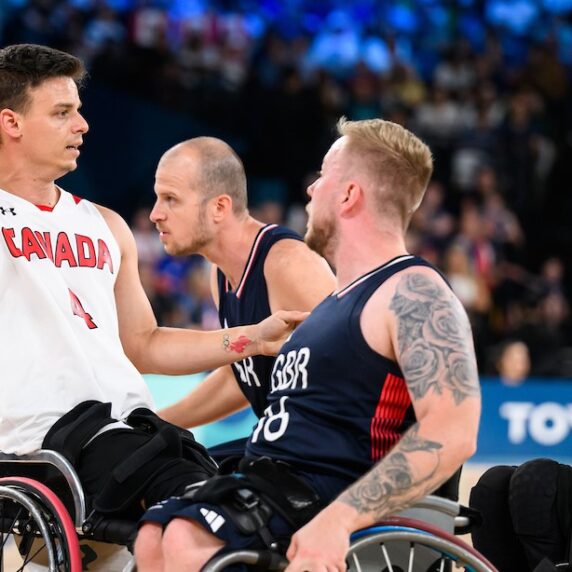Sport is life for Cindy Ouellet
Ouellet is focused on her summer sport for a very good reason

Cindy Ouellet added her to name to a select group of athletes when she competed in Para nordic skiing at the Paralympic Winter Games in March 2018. The 31-year-old from Quebec City became one of a small handful of athletes to compete at both a Winter and Summer Games.
The decision to be a two-sport athlete appears to be permanent for the foreseeable future. This summer, she’s been back on court training with Canada’s women’s wheelchair basketball team in Toronto as they tune up for the all-important Parapan American Games.
Ouellet is focused on her summer sport for a very good reason. Canada needs to place in the top-two at the Parapan Ams to earn its ticket to Tokyo 2020.
It is Ouellet’s fourth trip to the Parapan Ams and she knows the challenge in Lima won’t be easy. The Games run from August 23 to September 1.
‘’Lima is very important for us as it is our qualifier for 2020 so I’ve been really serious with my training in basketball since May,’’ said the three-time Paralympian. ‘’The entire crew is in Toronto training twice a day.’’
Ouellet says the competition in the Americas and around the world continues to improve in the sport.
‘’Wheelchair basketball has grown, there’s way more people playing, more teams, different leagues around the world,’’ she said. ‘’Then the game itself is way faster. There’s more strategy involved, it’s not purely strength. The chair has evolved as well, now we have super high-tech chairs that’s customized for each player.’’
Few athletes are as tough as Cindy Ouellet.
Involved in sports since she was a toddler, she suffered a pelvis injury after being hit in a football game. That is when doctors discovered the mass that would eventually be diagnosed as a form of bone cancer at age 12.
As a teenager Ouellet underwent 28 chemotherapy treatments and a three-year rehab at the Centre Cardinal-Villeneuve in Quebec City.
She returned to high school at 15, with no hair, white as a ghost, tiny and weak. She admits that she was bullied but again her tough resolve and support from family and friends extinguished potential serious hazards.
‘’It’s how you react that makes the whole difference,’’ she said. “If I was always crying and didn’t seek help then it would have been much worse. I knew there were resources for me, my family was there so I didn’t let it affect me that much.
‘’I’m not ashamed that I sought help. It made me mature.’’
In her immediate treatment and recovery period from cancer she was not allowed to do sports. But once back in school, her physio was the one that suggested she become active. At first it was track and swimming, then wheelchair basketball.
‘’I was really missing sport,’’ she said. ‘’It was a huge part of my life growing up. I don’t like doing sport just for fun, I want to compete. So I went to basketball practice and got into a chair and really fell in love with the sport. There was a lot of contact and it was super fast. I’ve played basketball ever since.’’
Sport quickly became Ouellet’s raison d’être.
‘’It was a way to start back a new life after the cancer story,’’ she said. ‘’I could enjoy life again. Sport is healthy so I started doing more and more training every day, twice a day. And being part of a team, it was like ‘Oh my God’ I can be successful in this and travel around the world, study around the world. I met a lot of amazing people who taught me a lot and I grew as a human and matured really fast.’’
Her first game with Team Canada was in 2006.
‘’It was in Australia and I sat on the bench for most of the game,’’ said the 31-year-old. “But I learned from some great players. Then Beijing 2008 was my first Paralympics and I played a little bit, then next Paralympics played a little bit more. Then eventually I gained a bigger role as team captain.’’
Ouellet helped Canada to a world title (2014) and the University of Alabama to two NCAA crowns. At Alabama, she graduated in exercise science, and earned a Masters in exercise physiology.
She received an academic scholarship and earned a doctorate at the University of Southern California in Los Angeles in bio-medical engineering. Her ambition is to do research for prostheses for amputees and work in neuromuscular technology and nanotechnology.
Ouellet not only brings points and precise passes to the Canadian women’s wheelchair basketball team. She also leads by example with her dedication to training and her ability to overcome adversity.
‘’Resiliency is one of my big words,’’ she said. ‘’There’s always going to be ups and downs and its how you get out of the downs is how you are going to grow.
‘’Then there’s discipline. My schedule day to day, hour to hour, I know what I’m going to be doing. I love sports so much that it is mentally not hard for me to want to go train and go out there and get better.
‘’So for me, sport is the easy part.’’



"*" indicates required fields
"*" indicates required fields